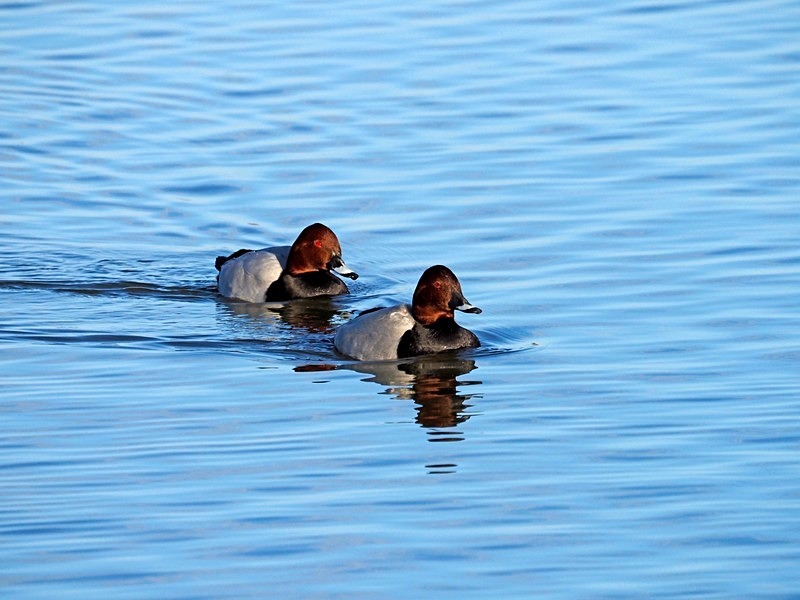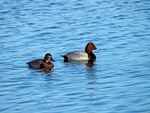Common Pochards

The Common Pochard is a medium-sized and stocky diving duck. The adult male has a long dark bill with a grey band, a red head and neck, a black breast, red eyes and a grey back. The adult female has a brown head and body and a narrower grey bill band. The triangular head shape is distinctive. The Common Pochard is superficially similar to the closely related Redhead and Canvasback found in north America.
The Common Pochard breeds in marshes and on lakes in much of temperate and north Europe and in to Asia. It is migratory and spends the winter in the south and west of Europe. In the UK, the Common Pochard breeds in east England and lowland Scotland plus in small numbers in Northern Ireland. Large numbers from Russia and Scandinavia winter in the UK on lakes, reservoirs and gravel pits, often mixing with other diving ducks such as the Tufted Duck.
In a number of countries, the Common Pochard is decreasing mainly due to habitat loss and hunting. It is one of the species to which the Agreement on the Conservation of African-Eurasian Migratory Waterbirds (AEWA) applies.
The Common Pochard feeds mainly by diving or dabbling for aquatic plants, molluscs, aquatic insects and small fish.
Date: 9th January 2022
Location: WWT Slimbridge, Gloucestershire
The Common Pochard breeds in marshes and on lakes in much of temperate and north Europe and in to Asia. It is migratory and spends the winter in the south and west of Europe. In the UK, the Common Pochard breeds in east England and lowland Scotland plus in small numbers in Northern Ireland. Large numbers from Russia and Scandinavia winter in the UK on lakes, reservoirs and gravel pits, often mixing with other diving ducks such as the Tufted Duck.
In a number of countries, the Common Pochard is decreasing mainly due to habitat loss and hunting. It is one of the species to which the Agreement on the Conservation of African-Eurasian Migratory Waterbirds (AEWA) applies.
The Common Pochard feeds mainly by diving or dabbling for aquatic plants, molluscs, aquatic insects and small fish.
Date: 9th January 2022
Location: WWT Slimbridge, Gloucestershire

|















